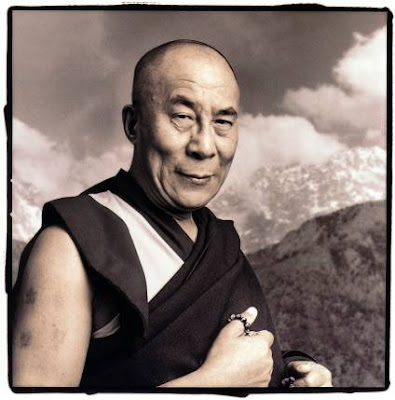
The Dalai Lama is a lineage of religious leaders of the Gelug school of Tibetan Buddhism and was the political leader of Lhasa-based Tibetan government between the 17th century and 1959. Referred to by his followers simply as "His Holiness" (HH), or "His Holiness The Dalai Lama", many Tibetans usually call the Dalai Lama by the epithets Gyalwa Rinpoche, meaning "Precious Victor", or Yishin Norbu, meaning "Wish-fulfilling Jewel." "Lama" (meaning "teacher") is a title given to many different ranks of Tibetan Buddhist clergy.
The Dalai Lama is believed to be the current incarnation of a long line of Tulkus, or Buddhist Masters, who have become exempt from the wheel of death and rebirth. These ascended masters have chosen of their own free will to be reborn to this place in order to enlighten others. He is also the official leader of the Tibetan government-in-exile, or the Central Tibetan Administration (CTA).
Between the 17th century and 1959, the lines of Dalai Lamas were the head of the Tibetan Government, administering a large portion of the area from the capital Lhasa, although the extent of the lineage's political authority and rulership over territory has been contested. Since 1959, the Dalai Lama has presided over the Central Tibetan Administration, which is based in Dharamshala, a small town in the foothills of the Himalayas in northern India, considering itself to be a government in exile. The Dalai Lama is often thought to be the head of the Gelug School, but this position officially belongs to the Ganden Tripa, which is a temporary position appointed by the Dalai Lama (who in practice exerts more influence). (wikipedia - www.righteousrestyle.com - imagecache.allposters.com)



No comments:
Post a Comment